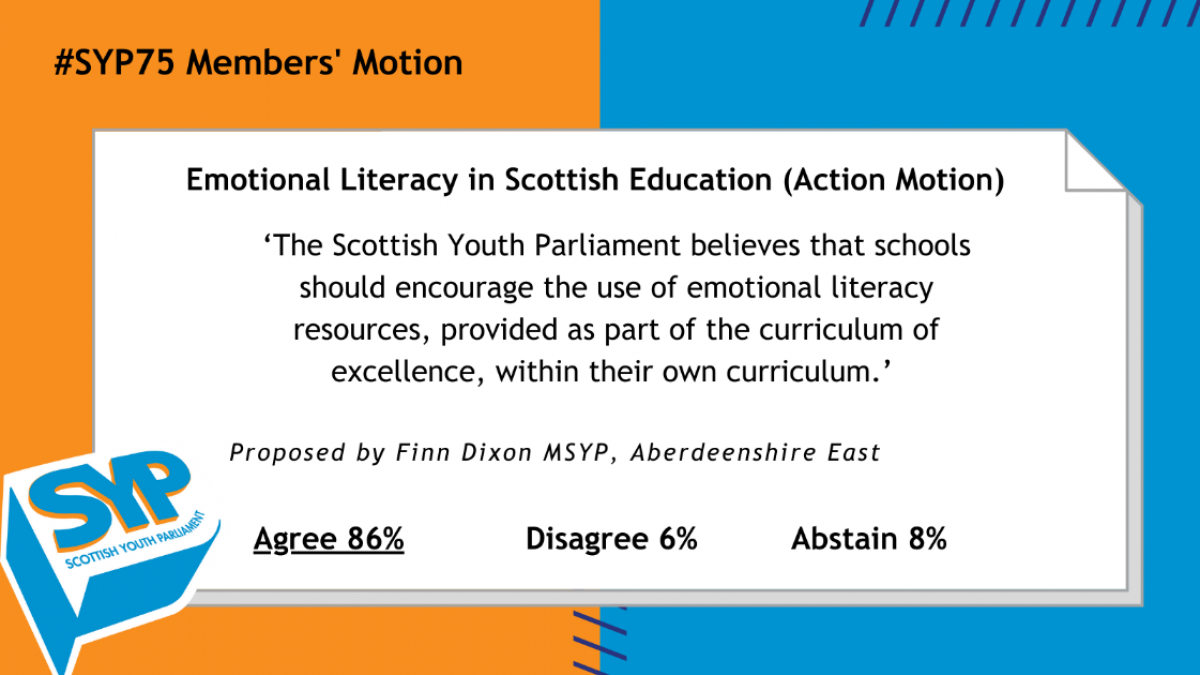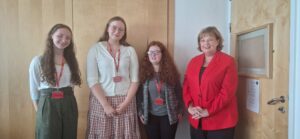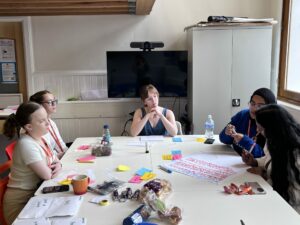In SYP’s current national campaign, Bounce Back, mental health and wellbeing was identified by young people from across Scotland as one of the five top priorities for SYP as Scotland recovers from the pandemic. I believe emotional literacy is an important part of this recovery process.
Emotional Literacy is your ability to recognise and talk about your emotions. To some, this may seem like a basic task. However, in practice it is extremely difficult for many people to do. As we come out of a time when young people’s mental health has been tested throughout a global pandemic, lockdowns, and varied and challenging personal circumstances, it’s so important we start to teach emotional literacy.
In June 2021, I presented a motion during SYP’s 75th National Sitting. My motion read ‘The Scottish Youth Parliament believes that schools should encourage the use of emotional literacy resources, provided as part of the curriculum of excellence, within their own curriculum’
The Covid-19 pandemic has taught us a lot about the way we live our lives. One thing that has become apparent in the past eighteen months is that young people’s mental health is fragile. Solutions for getting to grips with the mental health challenges young people face have been debated for a long time, including shortening waiting lists for support and providing more materials. But I would like to talk about a solution which needs more attention – emotional literacy and its place in Scottish education and the wider community.
I first came across the idea of emotional literacy through personal experience of mental health support over lockdown.
Not having experience of talking about and discussing my emotions put a barrier in the way of my effectively using the support I needed. Through the support I am currently getting, I work on my own emotional literacy. For me, an improved state of emotional literacy meant that I could process what was happening inside my head and get help with it in a way I otherwise wouldn’t be able to do. And I am one of the lucky ones; I get regular support sessions. But, for many that need it, this is not the case. In the Lockdown Lowdown survey of nearly 2500 people conducted across Scotland by SYP, Youthlink Scotland, and Young Scot in May 2020, 2 in 5 young people said that they were not confident in seeking information about mental health support [1].
A good understanding of emotional literacy can make seeking support a lot easier, both with the initial conversations and realising that you need some extra support for your mental health. The UNCRC says “Education must develop every child’s personality, talents and abilities to the full.” I strongly believe that developing children and young people’s emotional literacy falls into this right. Therefore, as part of Scotland’s journey to incorporate children and young people’s rights, and as we recover from the Covid-19 pandemic, we need to see more use of emotional literacy resources in schools, making it possible to teach emotional literacy from P1 to S6.
I would so strongly recommend that every young person is supported to extend their emotional literacy and, when needed, get professional advice and support when they need it.
References
[1] Lockdown Lowdown: https://syp.org.uk/our-work/political-work/covid-19-lockdown-lowdown/
SYP is currently working with SAMH (Scottish Association for Mental Health) to deliver a project calling for young people’s rights to be at the heart of community based mental health service design and delivery. Find out more at https://www.ourmindsourfuture.uk/scotland/



